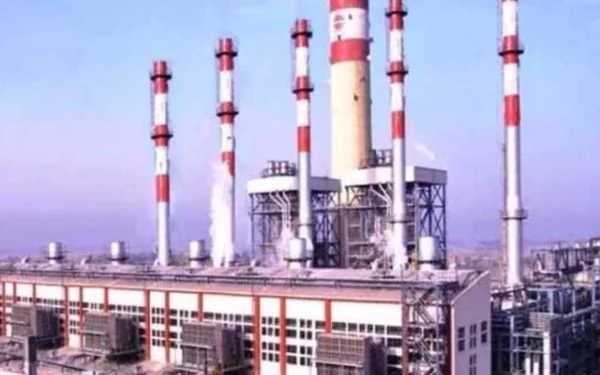Introduction
In a significant development for Pakistan’s energy and legal sectors, the Islamabad High Court (IHC) has conditionally permitted the federal government to collect a gas levy from captive power plants (CPPs). This move is part of broader efforts to align Pakistan’s industrial energy consumption with the country’s commitments under the International Monetary Fund (IMF) programme. However, the court has imposed strict conditions to ensure the levy is not misused and is legally justified.
Background: Understanding Captive Power Plants and the Levy
Captive power plants are industrial-scale energy generators owned and operated by factories to meet their own energy needs. These plants allow large-scale industrial operations, especially in sectors like textiles and chemicals, to produce electricity independently instead of relying on the national grid.
The government, under pressure from the IMF, decided to impose a gas levy on CPPs to encourage industries to connect to the national grid. The rationale was that such a shift would improve national energy efficiency, reduce the burden on gas supplies, and enhance revenue streams for public utilities.
In February 2025, the government introduced an ordinance to impose this gas levy, but at the time, specific rates were not disclosed. The situation changed following consultations with the IMF, which led to the announcement on March 7, 2025, of a 23% price hike for gas supplied to CPPs. The new rate was fixed at Rs 791 per million British thermal units (mmBtu).
Court Case: Industrial Stakeholders Push Back
The gas levy was met with strong resistance from industrial stakeholders. Twenty leading textile and chemical manufacturing companies filed petitions in the Islamabad High Court, arguing that the government’s decision was unconstitutional. The petitioners claimed that they were already paying sales tax on gas and that this additional levy amounted to double taxation.
They also contended that the government did not follow due legislative process in implementing the levy. According to the petitioners, any tax or levy must be approved by the Parliament, not unilaterally imposed through an ordinance.
In response to these legal challenges, the IHC issued a stay order in mid-March 2025, halting the collection of the gas levy.
Court’s Conditional Ruling
After nearly three weeks of legal deliberation, the IHC announced its conditional verdict in early April 2025. The court decided to lift the stay order, thereby allowing the government to begin collecting the Rs 791/mmBtu levy from captive power plant operators. However, this permission came with strict guidelines.
Key highlights of the court’s ruling include:
- Collection allowed, usage restricted: The court stated that although the government may collect the levy, it cannot use the money until the ordinance that created the levy is ratified by Parliament.
- Deposit into Federal Consolidated Fund: The court ordered that all funds collected under this levy must be deposited into the Federal Consolidated Fund.
- Limited usage scope: The funds cannot be used for any other purpose than what is explicitly mentioned in the ordinance.
- Refund clause: If Parliament fails to ratify the ordinance before it expires, the government must refund the collected amount to the petitioners without any delay.
Government’s Argument: Constitutional Authority and IMF Compliance
During the proceedings, the Attorney General of Pakistan defended the government’s action by referencing Articles 199 and 89 of the Constitution. These articles empower the President of Pakistan to issue ordinances when Parliament is not in session.
The Attorney General argued that the levy was introduced legally under these provisions and was an essential step in fulfilling Pakistan’s commitments to the IMF. He claimed that delaying or halting the collection would jeopardize energy reforms and financial agreements made with the international lending body.
According to the government, the levy will help reduce electricity prices by Rs 1 per unit by channeling funds into public subsidies. Additionally, connecting industries to the national grid would reduce the pressure on natural gas reserves, many of which are rapidly depleting.
Petitioners’ Standpoint: Legal and Financial Concerns
On the other hand, petitioners highlighted several constitutional and operational concerns:
- Double Taxation: They argued that paying both sales tax and a new gas levy constitutes double taxation, which is unlawful under the Constitution.
- Legislative Process: The petitioners emphasized that the ordinance route undermines democratic accountability and bypasses proper legislative scrutiny.
- Economic Burden: The additional levy would increase operational costs, making Pakistani exports less competitive in international markets.
They requested the court to strike down the ordinance entirely and urged that any such policy changes must go through Parliament.
Implications for the Energy Sector and Industrial Landscape
This ruling has far-reaching implications for both Pakistan’s energy policy and industrial competitiveness:
- Shift to National Grid: The move aligns with a broader policy goal of transitioning industries from self-generation to the national electricity grid, improving centralized energy management.
- Short-Term Relief for IMF Targets: By permitting the collection of the levy, the court has helped the government meet short-term IMF targets, averting a potential disruption in the loan program.
- Legal Precedent: The judgment reaffirms the role of the judiciary in ensuring that executive decisions comply with constitutional frameworks and procedural fairness.
- Industrial Tensions: Despite the court’s conditional approval, the industrial sector remains apprehensive about increased costs and operational disruptions.
Conclusion: A Delicate Balance
The Islamabad High Court’s decision seeks to strike a balance between the government’s fiscal and energy policy needs and the constitutional rights of industrial stakeholders. While the conditional allowance of the gas levy serves immediate governmental goals, the final outcome now hinges on Parliament’s response.
If the ordinance is ratified, the levy will likely become a permanent feature of Pakistan’s industrial energy landscape. If not, the collected funds must be returned, and the government will need to rethink its energy reform strategy.
The coming weeks will be crucial in determining how this policy unfolds and whether it receives the legislative endorsement needed to become law. For now, industries must prepare for financial adjustments while the government continues its push for structural reforms in the energy sector.

























